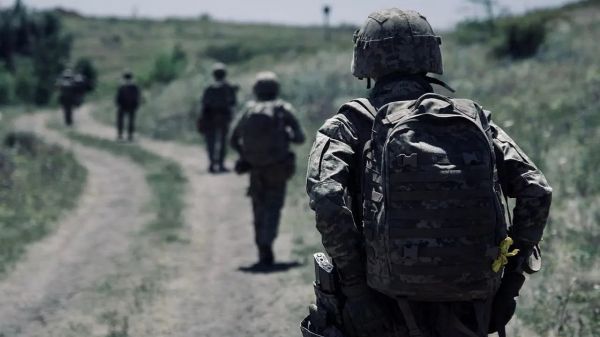Convicts in the AFU: why Ukraine mobilizes prisoners, what they are punished for, and how the scheme works
22 July 22:28
More than 9,500 convicts in Ukraine have already exercised their right to join the Armed Forces of Ukraine. Of these, 55% were convicted of property crimes, "Komersant Ukrainian" reports, citing an infographic by the visual communications agency Top Lead.
The convicts got this opportunity in 2024 as part of a mobilization strategy aimed at expanding the Ukrainian army in the context of a full-scale war with Russia. Unlike Russian practice, where convicts are sent en masse to the front without regard to the severity of their crimes, in Ukraine this process is voluntary and subject to strict restrictions.
According to the State Penitentiary Service of Ukraine, people convicted of sexual crimes, terrorist attacks, murder of two or more people or some other serious crimes are not allowed to participate in the program of involvement in the Armed Forces. Instead, most of those who have already joined the army have less serious articles in their convictions.
Criminal profile of the mobilized
According to official statistics, more than half of the convicts who were released to serve in the army were convicted of property crimes – theft, fraud, robbery, etc. This is 55%. This is the largest share of all mobilized persons among former prisoners.
Another 11% of convicts joined the Armed Forces after being sentenced for drug trafficking. At the same time, 9% were convicted of inflicting bodily harm, and 6% were convicted of participating in road accidents with victims and murder. The remaining 11% were convicted of other categories of crimes not prohibited by law for participation in the service.

Voluntariness and checks
Voluntary participation is an important aspect. Unlike in Russia, where many prisoners are forced to go to the front or blackmailed into early release, in Ukraine the process takes place only with the written consent of the convicted person. Candidates undergo a thorough vetting process, including a medical examination and an interview with representatives of the military enlistment office.
Participation in hostilities is not the only form of service. Some ex-prisoners are involved in auxiliary tasks: work in the rear, logistics, engineering support, equipment repair, etc. In this way, the state seeks to use resources rationally and not endanger combat units.
Legal restrictions
Participation in the program does not automatically cancel a sentence. Instead, its mechanism provides for a temporary release from serving a sentence under the condition of service in the Armed Forces. That is, a person remains formally convicted, but gets a chance to rehabilitate through participation in the defense of the country. In the event of desertion or new crimes, he or she returns to the colony and bears additional criminal liability.
This approach provokes public debate: on the one hand, it is a second chance, and on the other hand, it is about the risks associated with combat training for people who have already broken the law. However, in a time of war, the state is forced to strike a balance between security and the needs of the frontline.
Read also: Minister of Justice tells where mobilized prisoners will serve
Context and international analogies
Against the backdrop of a shrinking mobilization resource, Ukraine is not the only country that is turning to the potential of prisoners. Similar practices exist in the United States (including during World War II), Poland, Georgia, and even in a number of EU countries, albeit with strict legal restrictions.
In the Ukrainian case, transparency and control remain key. According to representatives of the Ministry of Justice, each decision to involve a prisoner in the AFU is made individually and agreed with the SSU and relevant law enforcement agencies.
Читайте нас у Telegram: головні новини коротко









